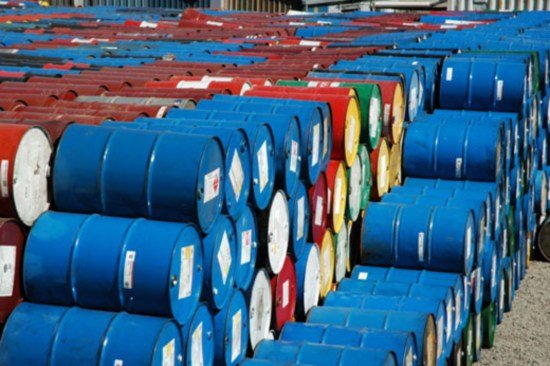12 July 2016, Lagos – Nnimmo Bassey, a renowned environmental justice advocate is the Director of the Health of Mother Earth Foundation, an ecological think tank and advocacy organisation. He also chaired Friends of the Earth International from 2008 to 2012. He spoke to Chineme Okafor on the challenges of oil pollution in the Niger Delta, its remediation, and the renewed insurgency in the region. Excerpts:

Thank you for accepting to share your time with us. The government just launched its plans to clean up the polluted Ogoni environment in the Niger Delta, would you consider this time appropriate for the request that had been on the table for a long time now?
The clean-up of the polluted Ogoniland and the entire Niger Delta has been long in coming. The exercise should have started decades ago, and every delay has meant an increase in the scope of the problem including the accumulation of new toxic dumps, oil spills and gas flares.
There is at least one oil spill that occurred in the early 1970s and is yet to be remediated. That spill is at Ebubu Ejama and anyone can visit and see it. The site is fenced off and guarded, but it is right there as a sore thumb crying for attention.
In fact, we can say that what has been done to the environment amounts to ecocide and requires to be treated as such. We always talk about oil spills and gas flares but beneath the radar is the dumping of hundreds of thousands of barrels of produced water daily into the Niger Delta environment. So, my point is that today is a better day to commence the clean-up process than tomorrow.
We are seeing insurgency come up again in the Delta, crude oil pipelines are again broken and products spill into the environment, what is the implication of this?
The renewed incidence of third party pipeline rupturing is a great concern. They are massively polluting the environment and increasing the miseries of the local communities. The insurgents may claim that they are not killing people, but every polluting act in our fragile ecosystem has health and life expectancy implications. This is especially so because our people are condemned to drink water from polluted streams, eat polluted fish and farm in polluted lands. Belligerent groups should consider the impact of their actions on the people and even future generations.
A point that we must make is that it is sickening when analyses of the impact of the pollution of the region is tied solely to loss of revenue. This rather unfortunate position discounts the lives of the people and all efforts to contain conflicts are aimed at keeping a steady flow of crude oil, maintaining production quotas and ignoring the blood, tears and sorrows of the communities.
Would you then consider such renewed pipeline breaks as a perfect storm for stakeholders to ride on in remedying the polluted environment of the Delta?
This is an interesting question. My short answer is that the clean-up is a perfect retort to the destroyers. We can only overcome evil with good, not with more evil.
I see a clean-up of the Niger Delta as the best foot any government can put forward. This is why the present government should not only commence the marathon but lay down strong structures that will ensure that no one plays politics with the exercise.
From your assessment as an environmentalist, how bad is the environment of the Delta, has the UNEP Report provided adequate measures to clean up this environment?
The UNEP report was an assessment of the environment of Ogoniland. That report was published five years ago and to our shame nothing substantial has been done about implementing its recommendations. While that was a fair assessment of the state of the Ogoni environment five years ago, the situation in other parts of the Niger Delta has not been assessed.
Agreed, we can see the UNEP report as a template or snapshot of the overall Niger Delta context, but we must not lose sight of the fact that pollution is going on unabated in places like Ikarama in Bayelsa State and Ibeno in Akwa Ibom State, to mention a few. So, if the UNEP report revealed a horrific state of an environment where oil extraction was stopped 23 years ago, we can only imagine what the situation is at other places where routine pollution has reined since the 1950s.
We should also add that naming Oloibiri oil well, which is acclaimed as the first oil, as a monument, is not an answer to the non-decommissioning of dried wells in the region. Mining agreements have allowances for decommissioning at the end of the lifespan of the mines. The same is the case with oil wells as contained in EGASPIN. We have abandoned oil wells begging for decommissioning and others drilled, capped and ignored until they rupture and spill crude into already bastardised environments. We have to wake up from this nightmare and do the right thing.
The UNEP report made recommendations for short, medium and long term measures. Although there are gaps in the report itself, it provides sufficient grounds to begin emergency measures, like provision of potable water in highly polluted areas, as well as training centres to raise the manpower that would be needed to support the clean-up efforts.
Have you studied the government’s clean-up plan, vis-à-vis the recommendations of UNEP. Is there any cheery news in this?
The clean-up was ceremonially flagged off on 2nd June 2016 as a demonstration of the determination of government to actually clean up Ogoni and the entire Niger Delta. We are all waiting for government to set up the support and governance structures that would affect the actual clean-up. We are waiting to see the revised gazette for the HYPREP, the major structure that would drive the process. Until we have these structures in place we cannot in any honesty say what is cheery or not cheery.
As someone who has heard and seen some of the efforts being made towards setting these structures in place, I can say that there have been serious efforts at listening to the voices of Nigerians on the architecture of the organs that would oversee the processes.
However, until these are done, we can only say we hope that the clean-up gets off the ground beyond the ceremony of 2nd June.
Beyond the clean-up, what should be the next focus to keep the Delta clean from oil pollution?
This is a good question. First we have to urgently transit from dependence on crude oil and other petroleum resources. Oil has done more harm than good to our environment and national psyche. It has built a dependency syndrome coupled with rabid corruption. That is one. Secondly, there should be urgent auditing of all oil facilities to check their current state and to ensure that they are serviceable. Third, those blowing up pipelines should utilise their skills in productive ventures. It is such a shame and waste to utilise diving and underwater welding or military skills to breach pipelines. Fourth, oil companies should rise above their current crude methods and work strictly in line with standards – national and international requirements as well as internal industry standards. They should check the integrity of their facilities and respond promptly when incidents occur. Fifth, regulatory agencies should be fully equipped and uncoupled from dependence on the oil companies they are meant to regulate or monitor.
Here I have NOSDRA and DPR in mind. The NESREA Act should also be amended and the oil sector brought under its purview. Sixth, communities and civil society groups should be adequately empowered and granted unfettered access to monitor oil company activities in their environment.
Finally, the discontent in oil field communities can be smothered if the provisions in the Mining and Minerals Act of 2007 are also made applicable in the petroleum sector. The Mining Act has a clear section on environment and community issues. The communities are clear stakeholders and owners of lands set and receive annual rents when their lands are used. There also clear provisions for agreements to be reached with communities on the social responsibilities of the companies. Besides there are areas or territories with special significance to communities that mining is not allowed. Why can we not change the war laws governing the petroleum sector from the days of the Nigeria-Biafra civil war? I recommend that the NASS lifts those sections of the Minerals act 2007 that speak to communities and environment and insert them in whatever Petroleum Industry Bill they are working on. That should build peace and settle the matter of stake holding in the sector.
Ultimately, States should own whatever resources they have in their territories and pay taxes of whatever magnitude to the federal government for the running of collective concerns. We cannot run governments by bailout. We need to get to work.
Nigeria recently submitted a revised country plan on gas flare-out to the UN, that plan suggests that deadline to end gas flare in the country has been pushed back again, what does this mean?
That is the same question I have. Gas flaring has been illegal in Nigeria since January 1984. We have not done the right thing with regard to this environmentally harmful practice. The only good in having a deadline is that there is a measure by which someone can be held to account. In that sense, it is better than not having a target. But we need to see actions on the ground. The health and economic impacts of gas flaring are glaring and Nigeria should face up to this morbid monstrosity and stop it.
You advocated in your book, ‘To cook a continent’ that the best way out of oil pollution was to leave the resource in the soil, what do you mean by that?
Keeping the oil in the ground has since become a global call. In a period of two weeks in the month of May 2016, climate activists in fifteen countries, including Nigeria, embarked on a series of actions under the banner, ‘Break Free from Fossil Fuels’ to underscore the urgency of this unavoidable call.
Keeping fossil fuel in the ground rather than extracting and burning them, is the cardinal action needed to fight global warming. This is the crucial matter that the Conference of Parties (COP) to the United Nations Framework Convention on Climate Change (UNFCCC) has refused to acknowledge possibly due to the influence of the fossil fuel industry and their political backers. It is known that unless 80 per cent of known fossil fuel reserves are left unburned we are set on the track to catastrophic climate change. What will prevail here: common sense or dollar sense? Life or profit? These are the questions. These constitute the point in our call to leave the oil in the soil and the coal in the hole. A former Saudi Arabian foreign minister once said that the “stone age did not end for lack of stones” indicating the dirty oil age will not necessarily end with the drying up of oil reserves or wells. Humans should decide now before it is too late.
- This Day



